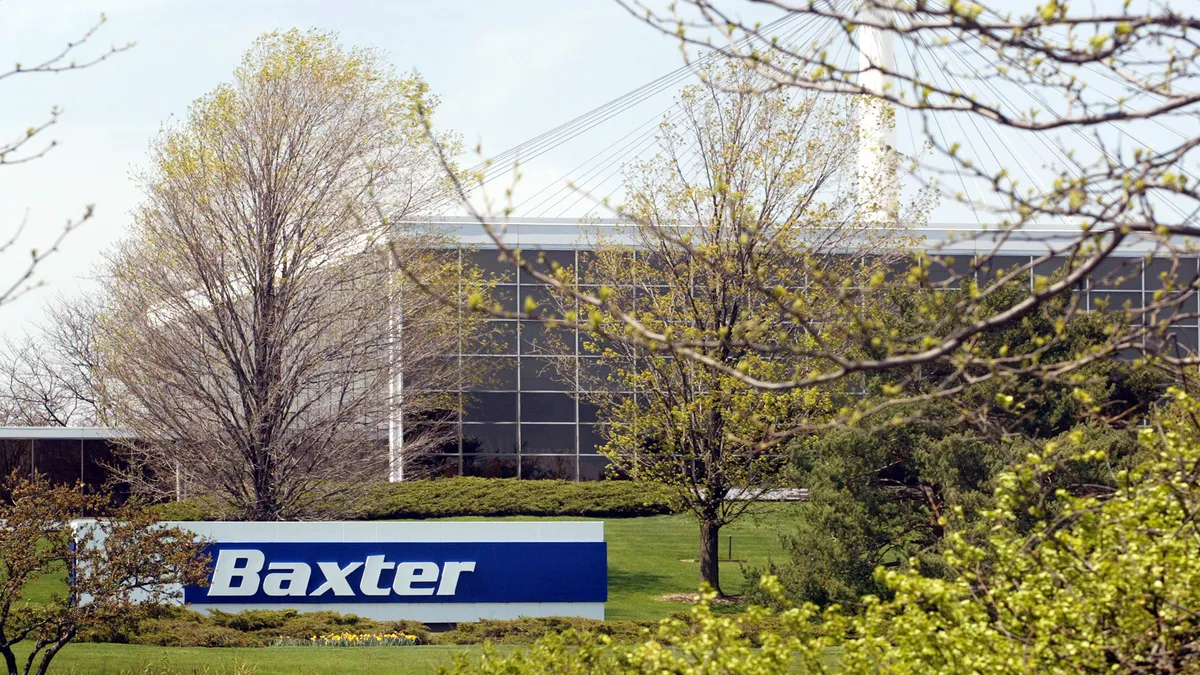Baxter International, which is streamlining operations to boost growth and profits, has completed the divestiture of its biopharma solutions business during the third quarter and reorganized its remaining businesses into four new segments.
Nearly all of the roughly $3.7 billion in after-tax proceeds from the biopharma solutions sale to Warburg Pincus and Advent International will be used to pay down debt, Baxter CEO José Almeida said Thursday on the company’s third-quarter conference call.
The new business will operate under the name Simtra BioPharma Solutions.
The company also established four business segments as part of its broader restructuring, replacing the previous nine. The four new units are: medical products and therapies, healthcare systems and technologies, pharmaceuticals, and kidney care. The latter is soon to be spun off.
Baxter reported third-quarter revenue of $3.71 billion and adjusted earnings per share of 68 cents, both of which exceeded the company’s expectations.
Stifel analyst Rick Wise called the results encouraging, writing in a note to clients that with a “three-quarter track-record of delivering in-line or better performance, we see Baxter as making meaningful progress in rebuilding credibility in its ability to set reasonable and achievable investor expectations.”
Kidney care spinoff
Baxter said preparations are progressing for the planned spinoff of its chronic therapies business, which includes peritoneal dialysis and hemodialysis, and the kidney care segment into a standalone, publicly traded company.
The new company's operating model is close to being finalized, and the spinoff is expected to occur by July 2024.
2023 outlook
For 2023, Baxter forecast full-year sales growth from continuing operations of 1% to 2% on a reported basis and about 2% on a constant currency basis. The company expects adjusted earnings from continuing operations, before special items, of $2.57 to $2.60 a share.
“We view the current market environment as relatively stable, though we continue to monitor hospital capital spending, particularly in light of an elevated interest rate environment,” Almeida said.
“While we have seen sequential improvement in orders within our care and connectivity solutions division,” the CEO added, “we continue to expect hospitals to exercise some degree of caution with their capital budgets.”











